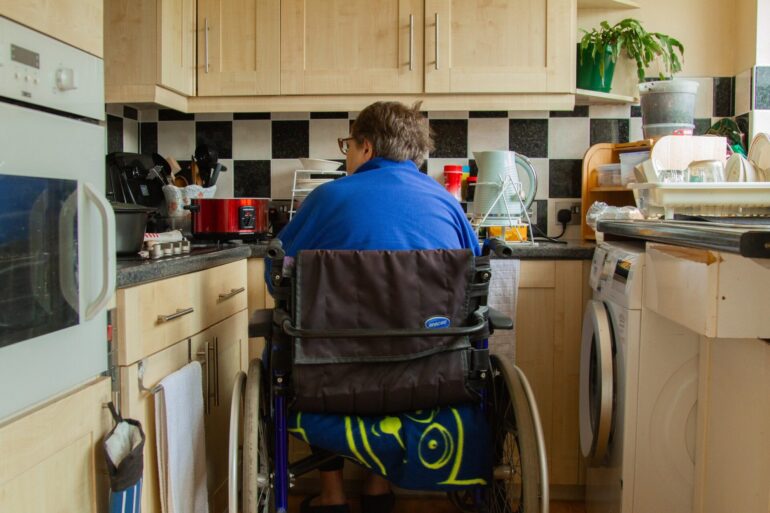New analysis from the Centre for Ageing Better and Habinteg Housing Association claims that up to 885,000 more people could now be living in accessible and adaptable homes had the Government delivered on its 2021 promise to improve minimum building standards.
The findings mark the three-year anniversary of a government commitment to mandate the M4(2) standard – requiring new homes to have step-free access and basic accessibility features.
Despite an initial consultation, a planned follow-up has never materialised. In that time, only an estimated 112,000 new homes have met the M4(2) criteria, with industry averages suggesting that just one in four new builds meet the standard. The remaining 375,000 homes have been built without the required accessibility.
Millie Brown, deputy director for homes at the Centre for Ageing Better, said: “We welcome the government’s commitment to building 1.5 million new homes; however, it is paramount that they are built to be accessible and adaptable.
“The Government must seize this opportunity to address the crisis of inaccessible housing and bridge the ever-widening gap between the number of Disabled people and accessible homes.
“The proportions of older and Disabled people among our population are growing significantly, and yet there are not enough provisions to support this change in our country’s demographics – we are falling abysmally short of meeting people’s needs.”
Polling carried out by the Centre for Ageing Better shows 66% of people believe they would struggle to remain in their homes without major adaptations if they became seriously ill or injured.
Three in four respondents said all new homes should be built to support independent living for ageing or Disabled individuals.
Christina McGill, director of social impact and external affairs at Habinteg, said: “The Government’s plans for housing are central to so much of what it wants to achieve.
“Accessible and adaptable homes in particular hold huge potential to reduce health and social care costs whilst supporting disabled and older people to work and maintain independence.
“Yet twelve months into the new Government’s term we’ve heard very little of its intentions with regard to the minimum standards of accessibility and adaptability.
“Meanwhile homes are being built, and plans are being made for new developments which will not be accessible and adaptable and will therefore fail to deliver these critical outcomes.”
The Centre for Ageing Better estimates that the number of people with unmet housing accessibility needs has grown by more than 2 million in the past decade, now affecting 12 million people.
The organisation, alongside Habinteg and the wider Housing Made for Everyone coalition, is calling for the Planning and Infrastructure Bill to be used to introduce the delayed accessibility requirement without further delay.



